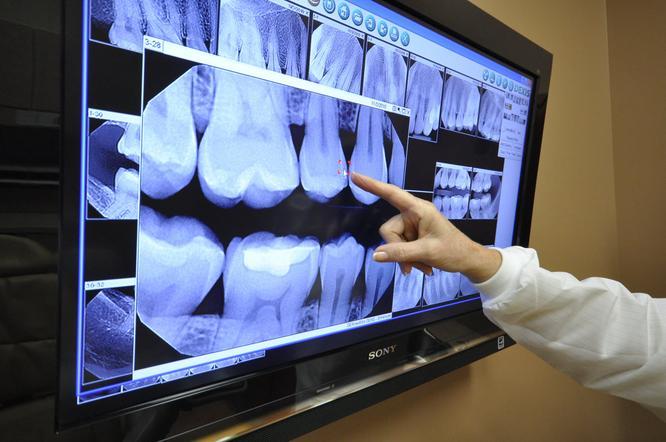Digital X-Rays
Crucial Role in Diagnosing Oral Health Issues
For an extended period, x-rays has played a crucial role in diagnosing oral health issues and identifying compromised or deteriorating teeth. These imaging techniques offer a distinct perspective of the oral cavity, supplementing visual examinations. During the imaging process, the teeth and bones primarily absorb the rays, rendering them prominently visible on either film or a screen.
Virtually all new dental patients undergo imaging, although there is an option to request the transfer of previous imaging records from a prior dental provider to the new dentist.
Through a comprehensive analysis of these images, along with a thorough examination of your entire mouth and consideration of your dental history, Dr. Zeitlin can prescribe effective treatments and propose a preventive care strategy.

Frequently Asked Questions
Should I get dental x-rays?
Yes. Digital imaging plays a crucial role in identifying tooth decay and underlying damage, especially in areas less visible during a regular examination. These images also serve as a reference for tracking the progression of decay in your mouth over time. Regular imaging is recommended, with a particular emphasis if you’re facing oral health issues or preparing for a dental procedure like a root canal.
What should I expect when I get dental x-rays?
Traditional dental imaging procedures can take several minutes. Dental professionals place a thick paper tab in your mouth, and you’ll need to bite down on it. However, digital imaging has streamlined this process. Many patients find digital imaging to be painless and causing minimal discomfort. Dentists may employ both intraoral techniques and those capturing images of the face, jaw, and skull. Dentists commonly utilize the latter to detect impacted teeth, such as wisdom teeth.
What happens after my dentist has taken x-rays?
When we finish examining your x-rays, we will either save them digitally or on film. Your dentist may request that you get new x-rays taken in the future to see the changes in your mouth every few years. This includes examining not just your teeth but also your gums and jaw as time progresses. If we deem you high risk for disease or you have symptoms, then your dentist will likely want you to have x-rays performed more frequently.

